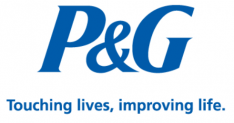Why the current global ‘Mediapalooza’ could be a huge waste of time for everyone
 With more than $200m of business in play in Australia due to global pitches. But David Angell asks whether swapping partners will achieve much for these multinationals.
With more than $200m of business in play in Australia due to global pitches. But David Angell asks whether swapping partners will achieve much for these multinationals.
Do you watch soap operas? Of course you don’t, you’re all busy executives with crippling workloads.
But I bet most of you can remember them from younger days.
Whatever the soap opera, for purposes of viewer entertainment and retention, obligatory partner-swapping always featured heavily in the storylines.
Pretty much every character would be romantically linked with every other character at some point.
Whenever a new affair broke, I would think the same thing. Why on earth does Danielle want to be with Phil? Yes, she left Egbert because he was unfaithful with Dora. But didn’t Phil already cheat on Libby and make Simon pregnant?
Aren’t you all just running in to the same potential problems all over again?
Maybe I was over-thinking things a bit back then. But I have to admit, when I look at the much-hyped ‘mediapalooza’ currently doing the trade press rounds, it does feel a bit like the obligatory partner swap.
A quick disclaimer. At TrinityP3, whilst we are involved in some current and forthcoming pitches across a number of disciplines, we aren’t involved with any of the global, reported media pitch events taking the world by storm.
But what I will say is that across the last six months I have counselled more than one client of a media agency as to why they shouldn’t go to pitch – at least, not yet.
The mediapalooza (a term coined by Adweek in the US) has been touted in various quarters as a reaction to recently reported transparency issues and downgraded stock ratings of some of the big players; or as a domino-effect as the big players trying to keep up with each other in securing the best agency talent; or as the watershed time that will prompt agencies to completely change the way they go to market.
But (and here’s where I’ve focused some elements of my counsel) if, in any individual case, the client’s basic approach to market is not really going to alter, what on earth can be expected to really change by choosing another partner?
So, this article is speculative. I can’t pretend to know the inner pitch workings at play in the mediapalooza camp. But years in the game tell me, with a weary degree of cynicism, that the likely outcome, in reality, will be like a joke that begins ‘three men walk into a bar’ – the end result will unfold with a tedious and predictable inevitability.
 Just to give this comment some validation, here’s MediaPost, referring to the Mondelez pitch: “The issue isn’t performance-related, the client indicated, but rather about an opportunity to gain efficiencies that can be re-invested to drive further growth.”
Just to give this comment some validation, here’s MediaPost, referring to the Mondelez pitch: “The issue isn’t performance-related, the client indicated, but rather about an opportunity to gain efficiencies that can be re-invested to drive further growth.”
 And here’s MediaPost again, talking about P&G: “Word of the review comes about three weeks after P&G executives signalled that they would be looking aggressively for ways to make the company’s advertising and marketing program more efficient, with plans to save $500 million annually going forward.”
And here’s MediaPost again, talking about P&G: “Word of the review comes about three weeks after P&G executives signalled that they would be looking aggressively for ways to make the company’s advertising and marketing program more efficient, with plans to save $500 million annually going forward.”
Doesn’t exactly suggest a new approach that will stamp out nefarious agency practices, improve the quality of output, maintain the best talent and change the way in which they work, does it?
If any of the following is happening in the palooza-linked pitches, the whole exercise will be a huge waste of agency time and client time; it will not increase agency or marketing performance for the client beyond a honeymoon period; the ‘efficiency gain’ or cost saving will be a mirage at best; it will not address any of the so-called ‘transparency issues’ – in fact, it may serve to increase them; and ultimately, it may well end up costing some people their jobs.
1. If the client continues to predicate choice of agency on cost and rate, instead of a balanced approach assessing value. It’s not rocket science, is it?
But my money says at least some, if not most of these pitches will use the same or similar metrics as they’ve always done, with the more cognitive or strategic elements of the agency response representing a pony-show with little actual bearing on the end result.
Cheapest TV rate? Of course, we want a higher level of discount than the previous agency. Lowest commission or retainer? Yes please, otherwise what’s the point? Biggest free or bonus airtime promises? That would be great, as long as no-one calls it a value bank. We’re looking for opportunities to cut cost wherever we can.
Agencies need to be properly considered against the strength and integrity of their entire operation, and against the direct influence they have on a client’s business, or business performance. They should also be expected to showcase the talent who will be working on the business, and charge commensurately for that talent. A balanced and genuinely holistic evaluation approach is required – not an exercise in seeing how low the agency can go to‘generate efficiencies’.
2. If the client moves agency on the strength of C-Suite relationships or linked business interests.
Let’s be clear – I have no knowledge, and therefore make absolutely no allegations against any of the current pitch players. But any of us who has been around for long enough has encountered this situation – either in a senior person stopping a planned move away from an agency, or an agency essentially being pre-selected in this way, with the pitch itself a pretence of due diligence.
Not only does this cause needless work and pain, but it doesn’t exactly reflect strong business ethics, does it? Agencies aren’t the only ones who should exert a degree of transparency!
3. If the client continues to accept a lesser degree of transparency in the digital space, because they don’t fully understand it.
I am continually surprised, from a consultancy perspective, by clients who say this to me: “We know we should be ‘doing digital’ and we are, but at the moment it feels like we’re just tipping money into a black hole. We have no real idea of what the agency does with it.”
Pitches continue to be structured largely around the application of what some would call traditional media channels. Of course, digital elements are threaded through responses, and agencies talk a lot about the quality of their automated tools and technology suite.
But much of this input is selective from an agency perspective, because they aren’t being asked to reveal any more – in fact sometimes they want to but can’t, because it’s basically off topic.
Where’s the client brief, in context of a multi-channel/full service media pitch, that asks the agency to detail how it would approach, for example, SEM or the management of a programmatic trading desk for the specific business under review – that asks what specific strategies the agency would consider using?
Where’s the brief that insists on meeting the teams that will actually carry out this work and asks to understand the operational workings between the various different specialisms? They’re still relatively few and far between.
In addition, contract proposals still suffer from a complete lack of detail in the digital space, with little or no push-back. It always amazes me that clients who expect detailed FTE and cost-base transparency for their core account team (as well as expecting to talk with these individuals on a regular basis) are prepared to accept ‘SEM is 11 per cent, programmatic is 15 per cent’ without any of the same rigour applied.
As with the traditional media rate-based incentive structures: If the agency is earning more money from digital channels than from other channels, how can it be agnostic?
The answer, in the current round of pitches, might be to reduce the digital commission through negotiation. That generates cost efficiency. But it doesn’t answer the bigger challenges, does it?
Mediapalooza it may be, billions of dollars may be involved, important it certainly is. But without huge change from the client side, then it really will amount to nothing more than an agency partner swap, soap-opera style.
- David Angell is media lead at marketing management consultants Trinity P3





Well said, David. The greatest irony is that these companies will waste an awful amount of time on creating efficiencies, and get none…
User ID not verified.
Good article. Couldn’t agree more.
User ID not verified.
well said. but you have missed one factor in the equation. there are agency CEOs so desperate to land a big client win, they will drop their pants on fees and/or promise unachievable savings to land a big client.
User ID not verified.
And another irony is that the deeper the discount the client and media agency chases, the further up the ‘bump list’ they go when demand starts exceeding supply.
Just about every media agency has the ‘guarantee’ that their client’s spots won’t be bumped – but that simply can’t be happening when there is strong demand.
So if your TVC is a crucial part of your ad campaign, especially if it has to fit in with a retail calendar, then the ‘efficiency’ gained can be wiped out by the lack of ‘effectiveness’.
But show me a procurement office who cares about effectiveness and growing a brand over the long term.
User ID not verified.
@hjt – I couldn’t agree more that the agency approach to new business acquisition does not always help. But I felt that in the context of the article, if I’d covered that topic, I’d have written War and Peace. At the end of the day, Mediapalooza is being primarily driven by client-led decision making, so that’s where I chose to focus the angle. How the agencies then respond – well, that’s a whole other candle for a whole other cake, as they say!
User ID not verified.
Nice article. No matter what the agency structure is. No matter what the agency preaches. It will have very little impact on change unless the client changes there ways of working first.
User ID not verified.
An incremental saving in fee here and supposed increase in discount there evaporates and then some as soon as a poor channel choice is made or late approval decision is given.
It really is penny-wise, pound-stupid in so many instances.
In many reviews the expectation from the client side is champagne service and talent on a beer budget. And stupidly agencies serve it up and in crystal! It all gets a bit teary soon after when the cork is popped on what should be a great vintage from a celebrated house and out drips some browning, lightly fizzed vinegar.
User ID not verified.